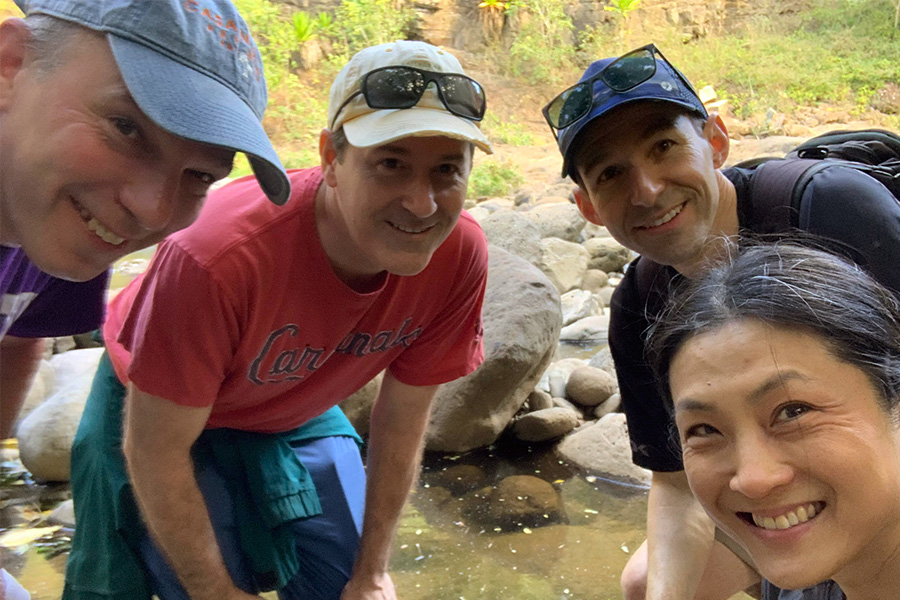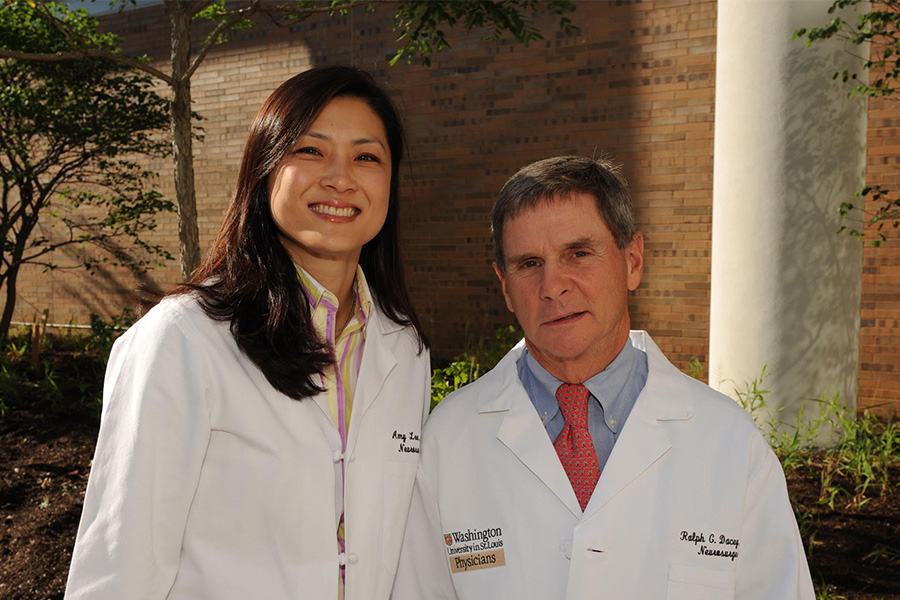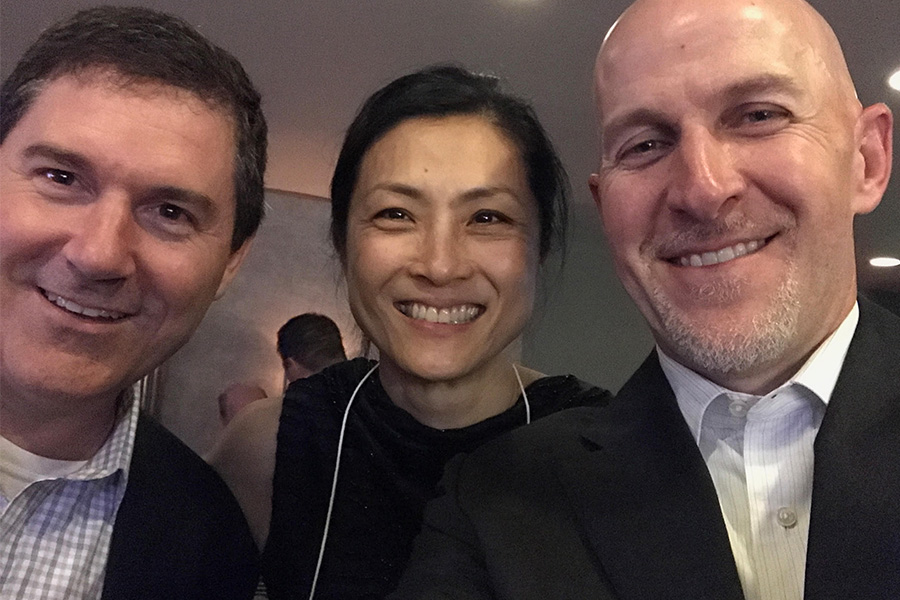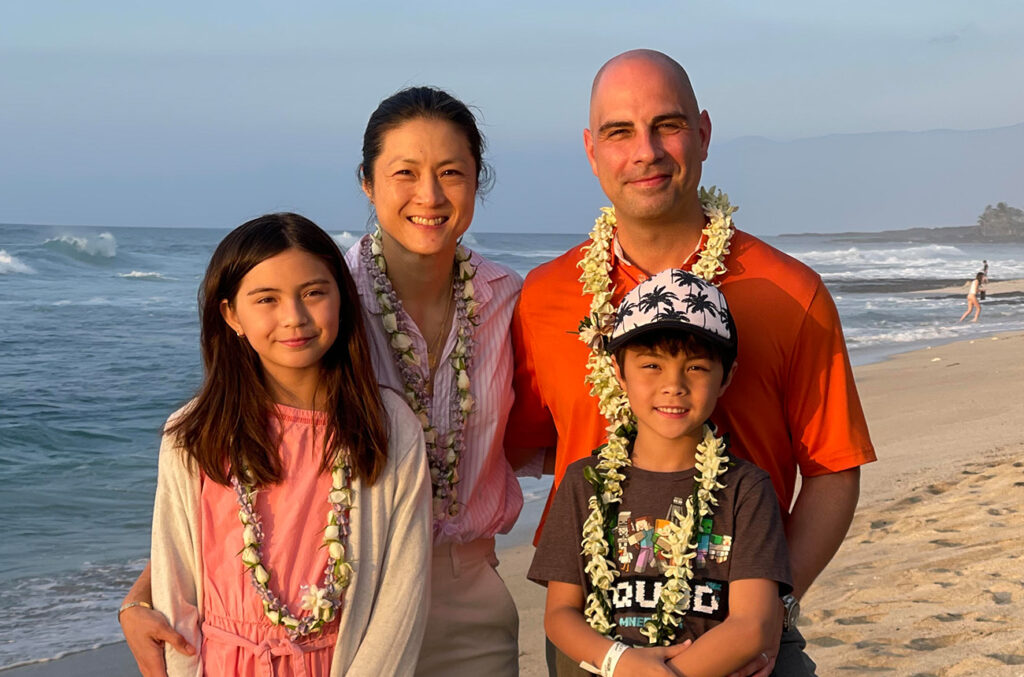Department of Neurosurgery alumnus Amy Lee, MD, FAANS, is the Division Chief of Neurological Surgery at Seattle Children’s Hospital.
At UW Medicine, she is also
- Associate Professor of Neurological Surgery
- Associate Residency Program Director
- Director, Pediatric Neurosurgery Fellowship
Lee completed her neurological surgery residency at Washington University School of Medicine/Barnes Jewish Hospital and a pediatric neurosurgery fellowship at St. Louis Children’s Hospital. She received her MD from the University of Texas Health Science Center at San Antonio, and her undergradate degree from the College of William & Mary.
Lee explains why she thinks she has “the coolest job in the hospital” and why Washington University always has a special place in her heart.
What do you find most rewarding about your work?
There are so many rewarding things about being a pediatric neurosurgeon, but the first thing that comes to mind is that I have the privilege to help a child and their family through the most challenging event of their life. Delivering the news to a family about a newly diagnosed brain tumor is incredibly heartbreaking, but I have to find a way to graciously help their child through the arduous journey they have ahead of them.

As the division chief, the opportunity to make sure that the children of the WWAMI (Washington, Wyoming, Alaska, Montana, Idaho) region get the best neurosurgical care possible, is incredibly rewarding. From an academic perspective, there is really nothing I enjoy more than being a teacher and mentor to the next generation of neurosurgeons who are currently going through their training.
How has your training at WashU affected your career?
It was an honor to train at one of the best neurosurgery programs in the country under the leadership of Ralph Dacey. I am always proud to say I trained there. But I know the program will be taken to the next level under the leadership of Greg Zipfel.
Dr. Dacey and all the other distinguished faculty I worked with as a resident helped lay a deep rooted foundation that I have built upon year after year in my academic career. There are many people there who have become lifetime friends and colleagues.

What is your most memorable moment training at WashU?
I think there are too many to count! Between the incredible faculty and my co-residents I worked with during my time there as a resident and fellow, it’s so hard to pick just one. I would say, though, that my chief resident year stands out the most. It was a tremendous year that really represented the culmination of all your years of training. I truly felt that by the end, I could confidently handle ANY neurosurgical problem that was presented to me. That was a great feeling! Also, the opportunity to spend six months in Ireland was a very special “life experience” that no other program in the country offers.
Do you have any advice for medical students looking to specialize in neurosurgery or pediatric neurosurgery?
I would say that hands down I have the coolest job in the hospital and that I absolutely love my job. However, there is nothing easy about it. The training is rigorous, long and intense. As a pediatric neurosurgeon, wife, and mother of two children, I often have a lot of balls in the air. The best way to put it is that I try my best to seek “work-life harmony” as opposed to “work-life balance” because the demands of being a neurosurgeon will always be high and often unmeasurable.
As I love to tell my residents, “You can’t join the track team and complain about running”. I look forward to going to work everyday and that’s all that matters.

Is there anything else you’d like to tell us?
My training at WashU as a resident and fellow will always hold a special place in my heart! This is my opportunity to thank Ralph Dacey, Greg Zipfel, T.S. Park, Matt Smyth, Jeff Leonard, Dave Limbrick Neill Wright, Paul Santiago, Todd Stewart, Keith Rich, Mike Chicoine, Bob Grubb, Eric Leuthardt, and Josh Dowling. You all were so instrumental in my success as a resident there!
